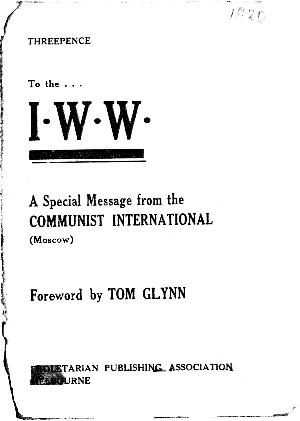(Updated May 13) Greece: What prospects for a SYRIZA-led left government?

SYRIZA leader Alexis Tsipras.
Το αποτέλεσμα των ελληνικών εκλογών και οι πολιτικές προοπτικές στην Ελλάδα

[English at Greece: What prospects for a SYRIZA-led left government?]
του Χρήστου Κεφαλή*
Links International Journal of Socialist Renewal -- Οι ελληνικές εκλογές της 6ης Μάη παρήγαγαν ένα συγκλονιστικό, εντυπωσιακό αποτέλεσμα που σίγουρα ανοίγει ένα νέο κεφάλαιο στην πολιτική ιστορία της Ελλάδας και θα έχει σημαντικές επίσης επιπτώσεις στην ευρωπαϊκή κατάσταση. Το αποτέλεσμα δείχνει μια σαφή πόλωση μεταξύ αριστεράς και δεξιάς και τη διάλυση των μέχρι σήμερα κυρίαρχων πολιτικών δυνάμεων του δικομματισμού.
Thailand: Who killed Aa-Kong (Ah Kong)?

The arrest of Aa-Kong.
By Giles Ji Ungpakorn
May 9, 2012 -- Links International Journal of Socialist Renewal -- The death in prison of the poor odd-job man Aa-Kong (also known as Ah Kong) is an outrage and it is yet another indication of the barbarity of the lèse majesté law, the injustice of the Thai legal system and the brutality of the Thai ruling class. The fact that he was refused bail to get medical treatment, and the fact that the prison authorities waited three days after he became ill before sending him to the prison clinic, is an indication of the terrible conditions in Thai prisons. He was convicted of lèse majesté for supposedly sending an SMS message to ex-prime minister Abhisit’s personal secretary. The evidence given by the state proved nothing.
In Thailand, generals and politicians who ordered repeated killings of unarmed demonstrators on five occasions since 1973 have never been charged and never been punished. But criticising the ruling class is considered to be a “grave offence”. Long prison sentences are handed down for lèse majesté.
(Updated May 8) Greece: Austerity parties smashed, radical left makes big gains

SYRIZA leader Alexis Tsipras is calling on the non-PASOK left to unite to form government and abolish austerity policies.
Britain: Coalition government parties battered in local elections

Respect's Alyas Karmani defeated the Labour Party leader on the Bradford council. Respect won five seats.
Socialist Alliance releases 'Towards a Socialist Australia' discussion document

May 5, 2012 – Links International Journal of Socialist Renewal – The following document,Towar
Can Asia save global capitalism?

Protesters rally, coinciding with the 45th annual meeting of the board of governors of the Asian Development Bank. May 2, 2012, in Manila, Philippines.
By Reihana Mohideen
May 4, 2012 -- Socialist Feminist, posted at Links International Journal of Socialist Renewal with permission of the author -- The Asian Development Bank (ADB) has just held its annual board meeting in Manila, accompanied by much publicity and fanfare about "sustainable and socially inclusive development". A key framework document presented is entitled How Can Asia Respond to Global Economic Crisis and Transformation. The paper was prepared by a team of ADB technocrats and other leading gurus of neoliberal economic dogma, such as Jeffrey Sachs. There are some key underlying themes that ran through the document, reflected in the major conference sessions:
One million climate jobs now! The video
May 4, 2012 -- Links international Journal of Socialist Renewal -- The Campaign Against Climate Change Trade Union Group is organising a Climate Jobs Caravan in England and Scotland in May 2012.
Based on the Million Climate Jobs report, produced with the assistance of Public and Commercial Services Union, the University and College Union, the Communication Workers Union and the Transport Salaried Staffs' Association, the caravan will highlight how creating climate jobs can help tackle the twin crises of the ecomony and climate change.
This inspiring video sets out the caravan’s message. The full 33-minute version, along with eight other videos about the struggle for justice, can be purchased on a DVD from Reel News.
To the IWW... A special message from the Communist International (1920)

Text and transcription from the Marxist Internet A
